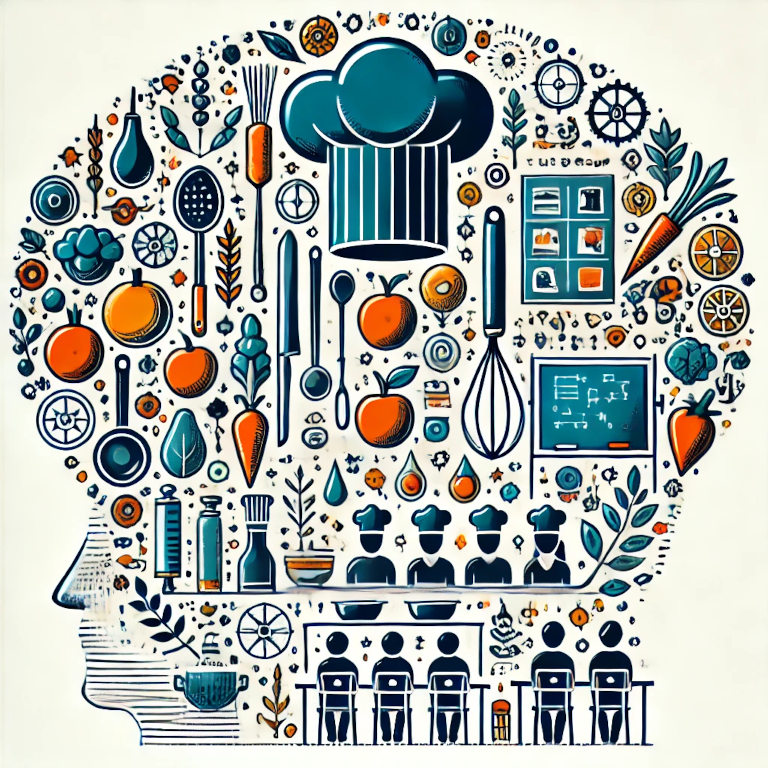Culinary education is the foundation for anyone aspiring to build a successful career in the food and cooking industry. It encompasses a range of programs, techniques, and knowledge essential for mastering the art of cooking and running a professional kitchen. As an expert in Food and Cooking, I will explore the various aspects of culinary education, its importance, and the opportunities it presents. This comprehensive guide aims to provide valuable insights for those interested in pursuing a career in the culinary arts.
The Importance of Culinary Education
Culinary education is vital for several reasons. It provides aspiring chefs with the technical skills, theoretical knowledge, and practical experience needed to excel in the culinary field. Here are some key benefits of culinary education:
Skill Development
Culinary programs offer structured training in essential cooking techniques, such as knife skills, baking, and sautéing. Students also learn advanced methods like sous-vide cooking and molecular gastronomy. These skills are crucial for creating high-quality dishes and ensuring kitchen efficiency.
Understanding Ingredients and Flavors
A comprehensive culinary education covers the properties and uses of various ingredients, as well as flavor profiles and pairing. This knowledge allows chefs to create balanced, flavorful dishes and innovate in their cooking.
Kitchen Management
Culinary education includes training in kitchen management, covering areas such as inventory control, food safety, and hygiene. This training ensures that future chefs can maintain high standards of cleanliness and efficiency in their kitchens.
Business Acumen
Running a successful culinary business requires more than just cooking skills. Culinary programs often include courses in restaurant management, marketing, and financial planning, equipping students with the knowledge needed to operate a profitable establishment.
Types of Culinary Education Programs
Culinary education is available in various forms, catering to different career goals and levels of expertise. Here are some common types of culinary programs:
Culinary Schools
Culinary schools offer comprehensive programs that cover a wide range of culinary techniques and knowledge. These programs typically last one to four years and result in a diploma, certificate, or degree. Examples include Le Cordon Bleu, Culinary Institute of America, and Johnson & Wales University.
Community Colleges
Many community colleges offer culinary programs that provide foundational training in cooking and kitchen management. These programs are often more affordable and can lead to an associate degree or certificate.
Apprenticeships
Apprenticeships provide hands-on training under the guidance of experienced chefs. This on-the-job training allows aspiring chefs to gain practical experience while working in a professional kitchen. Apprenticeships are often combined with classroom instruction.
Online Courses
Online culinary courses offer flexibility for those who cannot attend traditional programs. These courses cover various topics, from basic cooking techniques to advanced culinary arts. Platforms like Rouxbe, Escoffier, and ICE offer online culinary education.
Key Components of Culinary Education
To provide a well-rounded culinary education, programs should include the following key components:
Fundamental Techniques
Students must master fundamental cooking techniques, including chopping, grilling, roasting, and baking. These skills form the basis for all culinary practices.
Culinary Theory
Understanding the science behind cooking is crucial. Culinary theory covers topics such as food chemistry, nutrition, and the principles of flavor development.
Practical Experience
Hands-on experience is essential for mastering culinary skills. Culinary programs should include practical training in professional kitchens, allowing students to apply their knowledge in real-world settings.
Specialization
Many culinary programs offer specialization options, such as pastry arts, international cuisine, or sustainable cooking. Specialization allows students to focus on their areas of interest and develop expertise.
Professional Development
Professional development courses cover topics like resume building, interview skills, and job placement assistance. These courses help students transition from education to employment in the culinary field.
Career Opportunities in the Culinary Arts
A culinary education opens doors to a wide range of career opportunities in the food and cooking industry. Here are some potential career paths:
Executive Chef
Executive chefs oversee kitchen operations, create menus, and manage kitchen staff. They are responsible for maintaining quality and efficiency in the kitchen.
Pastry Chef
Pastry chefs specialize in creating desserts, pastries, and baked goods. They often work in restaurants, bakeries, or hotels and may develop new recipes and techniques.
Restaurant Manager
Restaurant managers handle the day-to-day operations of a restaurant, including staff management, customer service, and financial planning. They ensure that the restaurant runs smoothly and profitably.
Food Stylist
Food stylists prepare food for photography, television, and film. They use their culinary skills to create visually appealing dishes that look perfect on camera.
Culinary Educator
Culinary educators teach cooking techniques and culinary theory to students in culinary schools, community colleges, or private institutions. They share their knowledge and experience with the next generation of chefs.
Summary
Culinary education is essential for anyone looking to build a successful career in the food and cooking industry. It provides the skills, knowledge, and practical experience needed to excel as a chef, restaurant manager, or culinary professional. By exploring different types of culinary programs, understanding key components of culinary education, and considering various career opportunities, aspiring chefs can find the right path to achieve their culinary dreams. Whether through traditional culinary schools, community colleges, apprenticeships, or online courses, culinary education offers a wealth of opportunities for personal and professional growth in the culinary arts.






